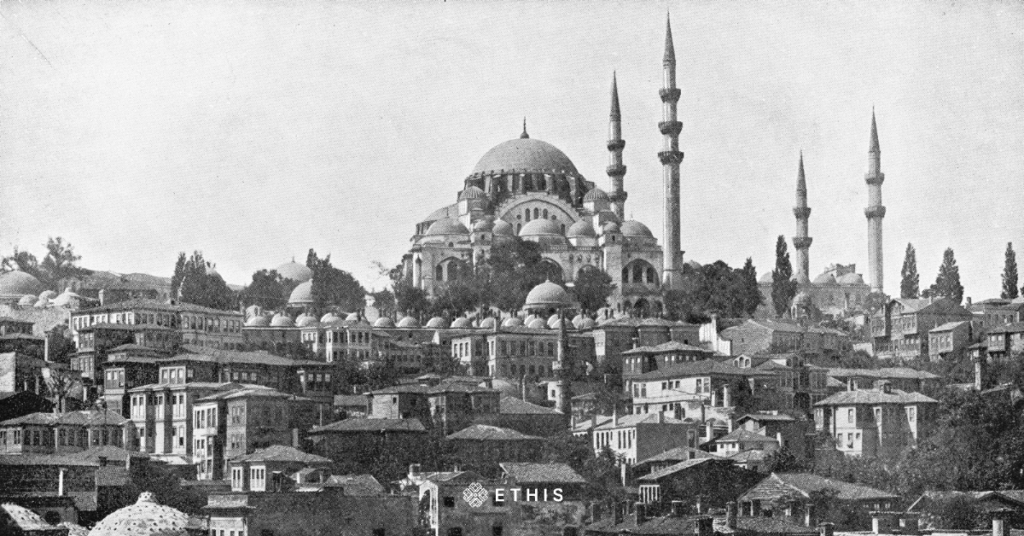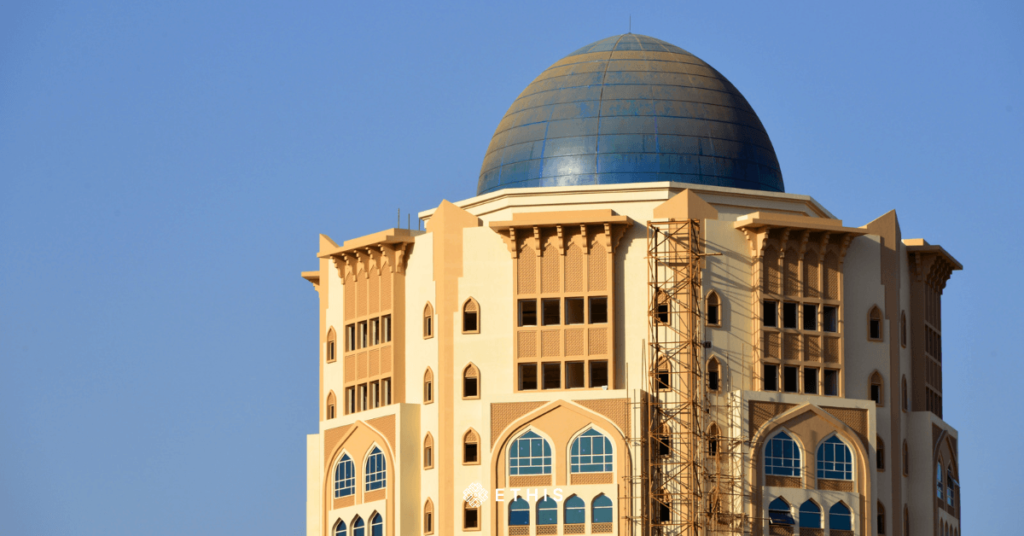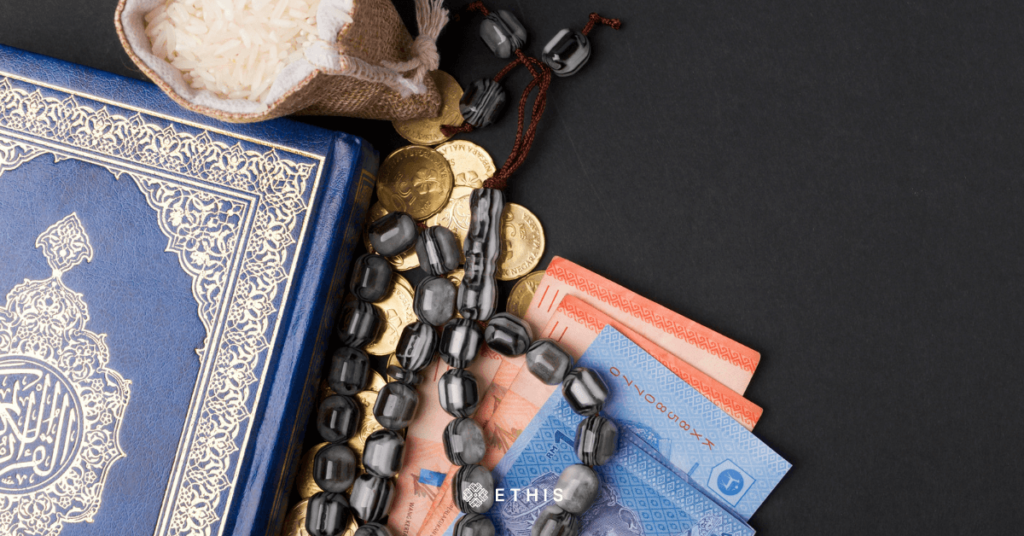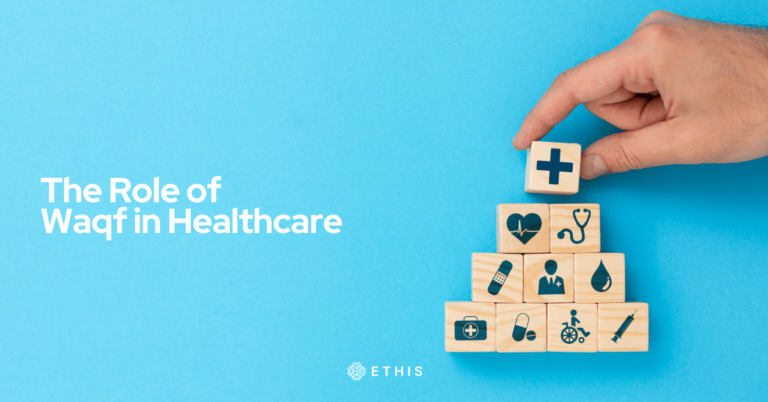
By Iskandar Ibrahim, Dadang Irsyamuddin, Esa Dwiyan, Miftah Firdaus and Hidayatul Ihsan from the Waqf Center for Indonesian Development and Studies (WaCIDS)
Health is a vital element of sustainable development. There is no civilisation that does not value good health. In addition, in Maqasid Shari’ah, health is part of maintaining or preserving the soul (hifdzun nafs). This shows that the preservation of health must receive due attention in an Islamic environment.
Islam emphasises preventive medicine (Al-tibb al-wiqa’i) more than healing (Al-tibb Al-‘ilaji). This is supported by many ahadith about maintaining cleanliness and bodily hygiene. Indeed the main task of the medical system in the heyday of Islam was to maintain rather than restore health.
In this regard, we feel that Waqf can be used as an alternative to hospital financing based on maslahah or the Islamic principle of public welfare. This was done by Caliph Harun Ar-Rashid in 688 AD with the construction of the Bimaristan (Hospital in Persian) in Al-Mansuri in Cairo.
The peak of the development of health facilities based on community social funds was during the Ottoman Empire. For instance, the Sulaymaniye complex consisted of two specialist schools (one of which was for the study of medicine and the other for the study of ahadith), a Koranic school for children, a hospital, a hostel, a public kitchen, a public bath, a house, inns, and a few rows of small shops. This medical school was also the first formal teaching medium in the Ottoman era.
When we study Islamic history, we would realize that the government and the people played a collective role in the development of each element of Waqf. We here analyse the role of Waqf as a financing instrument for the development of health facilities considering examples such as from the Ottoman period which could be replicated even today given the necessary environment.
Historical precedents


Waqf has always been the main financial institution in the Ottoman era. The large funding and creative innovation of Waqf management took the Ottoman Turks to a level where the basic needs of society were met. Health facilities were financed by Waqf. Education such as primary and secondary schools were built from Waqf. The markets and the development of local production were all funded by Waqf. Public kitchens that provided free ready-to-eat food to lower-middle class people were also established from Waqf funds. Moreover, direct cash assistance which was given every month to the poor and pensioners was also financed by Waqf.
That’s not all. Road facilities in the Ottoman era were repaired and paved at the expense of Waqf. The wells and water pipelines were also funded by Waqf projects. Bridges, buildings, lodging, storage warehouses, small industries and other buying and selling facilities were built from Waqf funds. Waqf projects in the Ottoman era succeeded in maintaining the country’s economy. Waqf in the Ottoman era was able to collect savings funds and even succeeded in increasing state treasury income.
Health Services


Waqf also touched on the realm of health. If we look at the Maqasid Shariah (Objectives of Shariah), the protection of life is the second most important goal after the protection of religion. So all efforts to protect human life such as health facilities become prioritised. From here, questions arise such as how is Waqf managed in the health sector? What projects are initiated to protect human health? How effectively and efficiently were the projects impacting the community? These questions will be answered in this research.
Sound Waqf management during the Ottoman era made that period a successful Islamic era in meeting the needs of the community. Historically, the hospital which was the main centre of health during the Ottoman era was a legacy of the Seljuk empire. During the reign of the Ottoman Turks, the hospital concept was revived initially to treat soldiers wounded by war.



The hospital at that time was not merely a health centre but was better known as a social institution that helped people to obtain treatment. The hospital as a social institution came about because all hospitals and their facilities were built using Waqf funds. In fact, all expenses incurred in managing hospitals such as salaries for hospital heads, doctors, surgeons, cooks, pharmacists and school teachers were also paid for from Waqf proceeds.
Waqf Model


The Waqf model that was first implemented during the Ottoman era was a general Waqf model as exemplified by the Prophet Muhammad, namely land and building Waqf. This Waqf was practised by the Sultan at that time by donating land and buildings to be used by the community. Regarding the implementation of Waqf in the Ottoman era, at first, the model that was practised was Waqf for the benefit of the general public (Waqf Khairi), then it developed into a cash Waqf model, and also Waqf awaridh.
Khairi Waqf
Khairi Waqf is a Waqf intended for religious or social purposes (public good). Waqf like this are often given by wakif for public purposes such as mosques, schools, hospitals, bridges and so on. The argument for Waqf khairi is based on the Waqf of the companion of the prophet Umar bin Khattab. The Waqf of Umar bin Khattab comprised a garden whose benefit went to poor and needy people. It was one whose results were intended for the public interest.
Cash Waqf


Since the beginning of the implementation of cash Waqf in the 15th century by the Ottoman Empire, it has had a very significant impact on society. Cash Waqf made the Ottoman government resilient because it was based on a sustainable socio-economic system
Cash Waqf is practised by giving Waqf in the form of money to a designated manager (Nazir) to be managed and the benefit given to people in need. In addition, cash Waqf was also practised to manage cash Waqf assets. In other words, existing Waqf assets were managed again using Waqf money obtained from benefactors. The application of such cash Waqf ensured an interest-free loan system.
The cash Waqf that had been collected was managed by the Nazir under several forms of schemes in accordance with the provisions of Islamic law. The forms of contracts used in the distribution of cash Waqf were qard hasan, mudharabah, and murabahah. Qard hasan is an interest-free loan that is given to the poor without taking anything in return. The Nazir provided loans to poor people who needed business loans using cash Waqf.
Another well-known and important form of cash Waqf operation that was practised during the Ottoman Empire was in the form of mu’âmele-i er’iyye. This practice was carried out by the Ottoman government to generate and benefit from cash Waqf and to avoid the practice of usury. Mu’âmele-i syer’iyye is also known as mu’amele or murabah-i mer’iyye. In some literature it is also known as “murabaha”.
Conclusion
What all this shows is that Waqf has played a major role in the health sector during various eras of Islamic history, especially during the Ottman period. The role of Waqf is so important that it is still used as a lesson for the management of Waqf today.
One of the services that can be financed by Waqf in the present day is the provision of lodging houses for patients who are underprivileged and far from their homes. In addition, the management of corpses by using Waqf assets both to buy mortuary equipment and providing funds for people who take care of the corpses is something that needs to be considered.





Top Posts
Islamic P2P Crowdfunding Explained
Halal Money Matters: How Muslims Can Balance Deen and Dunya with Smart Islamic Finance
Halal Investments for Singapore Muslims? It’s time for a shake-up in the Islamic Investments scene.
Smart investment for making Halal money
3 Reasons Why Property Crowdfunding is the Smart Investment for You